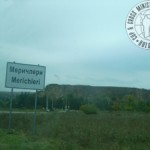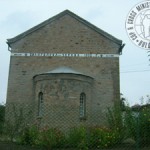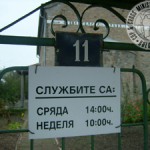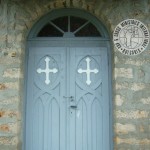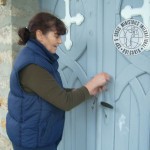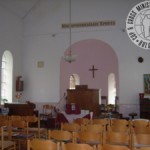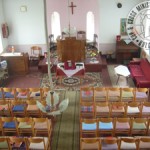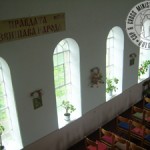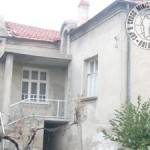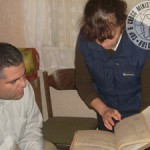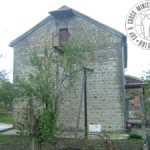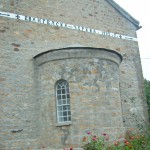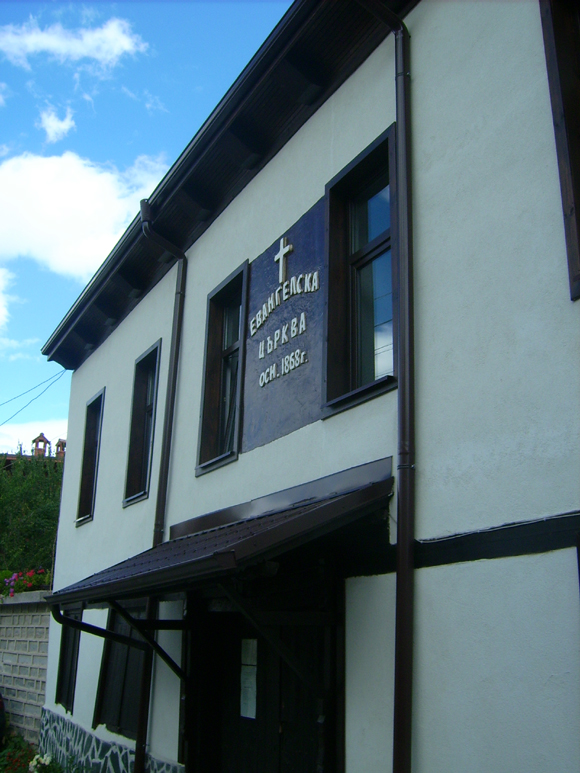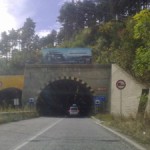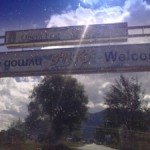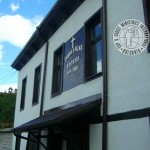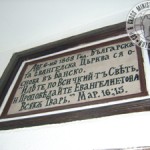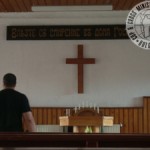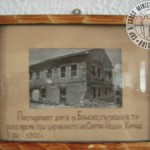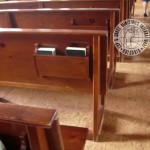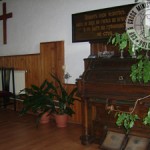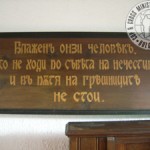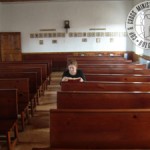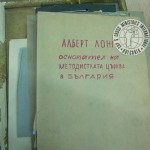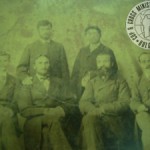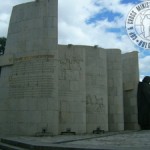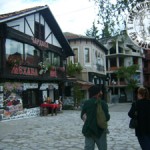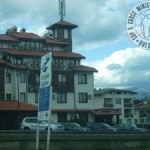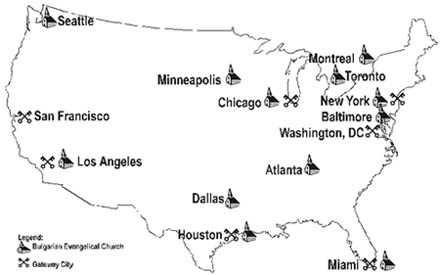Mirichleri: Second Evangelical Church in Bulgaria
Bansko: First Evangelical Church in Bulgaria
HERALDS OF THE TRUTH: A History of the Evangelical Churches in Bulgaria
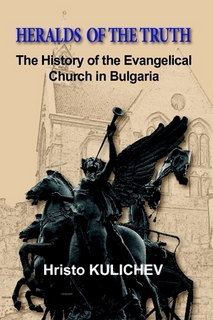 From the author of “Imprisoned for Christ”, now the first comprehensive history of Evangelical Christianity in Bulgaria is available in English. With the arrival of the first Congregationalist missionaries in 1844, more Bulgarians heard the Gospel than ever before. Despite resistance from the Bulgarian Orthodox Church, Evangelicals increased both in number and in favor with royal officials after the overthrow of the Ottoman Turkish Empire in 1888. The era of Communism brought new waves of persecution, but the Church in Bulgaria stood strong. This is her story.
From the author of “Imprisoned for Christ”, now the first comprehensive history of Evangelical Christianity in Bulgaria is available in English. With the arrival of the first Congregationalist missionaries in 1844, more Bulgarians heard the Gospel than ever before. Despite resistance from the Bulgarian Orthodox Church, Evangelicals increased both in number and in favor with royal officials after the overthrow of the Ottoman Turkish Empire in 1888. The era of Communism brought new waves of persecution, but the Church in Bulgaria stood strong. This is her story.
Bulgarian Evangelical Church Analysis 2010
1. The growing number of visitors of evangelical churches, caused by the socio-economical factors in 2010, will demand a time sensitive model for church conflict resolution and the restoration of church-wide unity. In this process, the evangelical preaching must adequately include the Bible teachings of forgiveness, agreement and unity.
2. In the context of the socio-economic crises and the inadequacy of traditional religion in 2010, more celebrities and politicians will show interest toward the evangelical churches and the elements of their services. It is a time for evangelical preaching to leave the four walls of the church and to juxtapose the Biblical standard for living as the social bases for building society.
3. The finalization of major church building projects in 2009-2010 will relieve a number of congregations from rent obligations, thus releasing more resources and funds despite the crises. The recipients of this blessing must use their buildings to relieve other evangelical churches from rent obligations in their respective regions, thus overcoming the feeling of power and priority and actualizing the vision of the Kingdom for brotherhood and unity. A church building could be used by 3-5 midsize congregations with a suitable program of services and a common Sunday service. The given blessing will either become a blessing for others or be taken way.
4. The search for responsibility from leadership as a whole is a process, which is constantly present within the evangelical movement with a special focus in the last 20 years. In regard to the said financial freedom in 2010, this search must be brought to an adequately working and properly contextualized model for leadership, which includes not only economical, but spiritual responsibility on the part of church leadership as well. It is impossible to define a life of holiness outside of the context of social relationships.
5. The opening of secret police dossiers belonging to leading religious leaders from the past and the present, purposes the destabilization of a unified and growing evangelical movement. Nevertheless, it is a process which must occur and a road that must be travelled by the Church in order to remove the unnecessary suspicions conceived by temporary external to the church factors. In this process, the guilty ones must humble themselves, while the hurt ones must forgive in order that the unity of the church is restored again.
6. Every persecution is a result of a broken balance in the relationship between church and state. Strong confrontation and persecution toward evangelical churches in 2010 is the natural result from the gradual increasing in restrictions of religious liberty and human rights. But in the struggle the Church does not weaken. On the contrary, the evangelical church knows how to heal in the processes of persecution and therefore they must be viewed as purification of the church for growth.
7. The increase of cases of religious persecution in 2010, in which the state religion aims at alternative faith communities in order to hide its own inadequacy in a given crises moment, may vary from a political position of the Church in society to creating a spiritually healthy new generation. These dynamics are results from the furious misbalance between the social position of the state church and its spiritual bankruptcy.
8. Within the lack of balance in the relationship between church and state, every change in the Religious Law in 2010 will result in a negative connotation toward evangelical churches. The society is unready to accept the protestant faith as a standard, although it applies it subconsciously in all social spheres – from culture to economy. There is no successful capitalist society without protestant values, and this fact must be realized by all church leaders.
9. The increasing return of immigrants back to Bulgaria in 2010, due to the prolonged economical crises in Europe, will create a flow of new thinking, ideas and dynamics in the Church, but it will not decrease the intensity of establishing new Bulgarian immigrant congregations in foreign lands.
10. After 20 years of democratic changes within the society and the church, in 2010 a new generation of leaders reaches adulthood. Teams of various church ministries enter a new level of professionalism. The church itself becomes socially aware rediscovering its own spiritual role and redefining its historical identity in a postmodern and post communist context. All this leads to the increase in the need for systematic studying and responsible practice of the principles of church leadership. In this context, the processes of returning to the first love, spirituality and unity are a must. The recognition of the need for such revitalization can in a moment change the status of the Church in history. The lack of recognition will doom the Church to a historical failure.
Bulgarian Evangelical Church Analysis 2009
1. Crises in the denominations were created by a vast spectrum of factors, from the lack of effective model for training a new generation of leaders to organized state restrictions against the evangelical churches.
2. The year 2009 was a time of confusion in the strategy of evangelical churches, accompanied with devaluation of the vision for evangelization, education and unity.
3. The hesitation within the leading denominations was properly detected by the receptive political and government organizations. Because of this, the attack against the evangelical denominations grew with well balanced and precisely targeted constant speed.
4. Among the reasons to put a halter on evangelical churches was to limit their vision for participation in the 2009 elections with (un)expected results.
5. The number of church visitors grew due to the political insecurity and economic crises. Yet at the same time, there was a decrease in visitors in the contexts of the new wave of immigration. These dynamics created a balance with the sense of plateau.
6. The stagnation within the evangelical movement was compensated with concerts and conferences, but unfortunately the elements of fasting, prayer and giving were rarely present.
7. Almost 15 years after the global introduction of the Internet through Windows 95, evangelical churches have begun to develop a sense for media. Media presence is increasing positively, which is justified with the growing interest in evangelical preaching and the social message which it carries. Unfortunately, in most cases the media presence becomes popularity without justification and an idea lacking strategic planning; thus, it currently does not produce adequate results.
8. The crises for leadership is a growing problem for the evangelical churches, which are currently lead by leaders without successors. The older generation of pastors is without a doubt influenced by the totalitarian model for leadership, while the ones who have been successful in separating themselves from it remain “self-taught leaders.” The newly founded denominations are unable to become the so-needed alternative. Processes of fatherhood and passing on of leadership are lacking, which births a growing interest toward the problems of church leadership.
Evangelical Education in Bulgaria
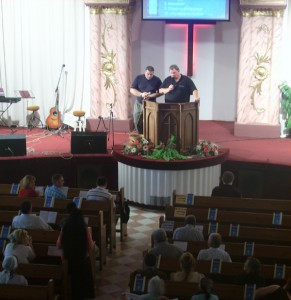 September 15th marks the beginning of the school year in Bulgaria. For us it is always a very special time, due to our continuous involvement in the development of Evangelical Christian education in Bulgaria through the years. This year we partnered with the Church of God of Prophecy in national leadership training held in Bulgaria. This is the second annual training event we are completing together here, as at the same time earlier this year we participated in the 2009 Development Institute of the Church of God of Prophecy in Cleveland, TN.
September 15th marks the beginning of the school year in Bulgaria. For us it is always a very special time, due to our continuous involvement in the development of Evangelical Christian education in Bulgaria through the years. This year we partnered with the Church of God of Prophecy in national leadership training held in Bulgaria. This is the second annual training event we are completing together here, as at the same time earlier this year we participated in the 2009 Development Institute of the Church of God of Prophecy in Cleveland, TN.
Upon the invitation of National Presbyter Peter Georgiev, we traveled to the Danube River port city of Rouse, where the training was held with special guests General Presbyter Clayton Endecott from Frankfurt, Germany and the director of the Tomlinson Ministry Center, Rev. Dr. H.E. Cardin from Cleveland, Tennessee. Lectures and discussions continued all day long as we were able to fellowship with one another during the breaks. The event was broadcasted LIVE on the internet and on Thursday it was watched at the chapel service in our Alma Matter, the Church of God School of Theology, now known as the Pentecostal Theological Seminary. During the brief webcast we prayed for a special blessing over the students and their instructors. The prayer video can be watched at the following internet location: http://worldmissions.tv/user/videos/bulgaria The training sessions and the church services of the conference were recorded and can be viewed online at: http://bibliata.tv/user/videos/peppiy
We will be dynamically involved in three more educational programs as the school year unfolds in Bulgaria as follows: (1) the Church of God national educational strategy in Bulgaria (2) the master’s level program in chaplaincy and (3) a mobile Bible School, with special focus on the practical and effective training of small ministry teams for the needs of local and regional congregations.
The Past, Present and Future of Evangelical Education in Bulgaria
April 5, 2008 by Cup&Cross
Filed under Publication
The missionary strategy of Protestant denominations toward Bulgaria within the 19th century effectively included evangelistic, publishing and educational outreaches. The educational paradigms, which the western missionaries introduced, were soon adopted by the Bulgarian people, quickly realized as progressive and successfully implemented in both religious and secular Bulgarian schools. These trends continued in the next several decades, educating Bulgarian youth and producing the first generation of Bulgarian leaders who took their rightful place in political, economical, social and religious structures in the Bulgarian lands.
Unfortunately, when the Communist Revolution took place in Bulgaria, all religious schools, with the exception of the Eastern Orthodox Seminary in Sofia, were closed down and religious education was outlawed. For the next half century, Bulgarian evangelical ministers were destined to do ministry without any former religious education.
When the Berlin Wall fell in 1989, the tension for religious education reached its culmination and a number of religious schools were quickly established across Bulgaria. The instruction methods used ranged from Bible study home groups to Bible colleges all to fulfill the niche for religious education. Two important milestones must be mentioned here, and they are the opening of the Logos Bible Academy in the Danube town of Russe and the starting of a long distance program by ORA International.
Naturally, the general trend of Bulgaria’s post communist governments to control these educational institutions resulted in the registration of a religious institute under the Directorate of Religious Affairs, a government agency formed to register, manage and supervise the activity of religious formation on the territory of Bulgaria. It was in this context that the Bulgarian Evangelical Theological Institute (BETI) was formed and registered in the capital Sofia. It included five departments (often called faculties), representing Bulgarian evangelical denominations with a predominant focus on the Pentecostal wing.
The Theological College in Stara Zagora, often mistakenly called a Theological Seminary, was established in 1998 as one of these departments to represent the Bulgarian Church of God. Because of current developments within the Bulgarian Church of God, the department was started in the city of Stara Zagora, located some four hours east of the capital and became the only of the faculties not located in Sofia. Naturally, its location, staff, affiliation and purpose created a sense of independence, both in its theology and structure.
With the acceptance of the new Act of Confessions in 2002, the Bulgarian government employed a more drastic approach toward all religious institutions not fitting the standard denominational profile. Since BETI was among them, the government initiated the process of the Institute’s accreditation with the Ministry of Education. Five years later, the government is yet to grant the accreditation. It was not until the publication of this article in March, 2008 that the Bulgarian Government moved toward finalizing the long-awaited accreditation of BETI.
Meanwhile the Institute’s management is facing a tri-dimensional dilemma which includes economic, cultural and leadership tensions. Some of them have not been resolved due to the lack of recourses; others have not been resolved due to the lack of essential prerequisites in the long-term educational strategy of the school. The following is a list of the challenges, which must be resolved immediately in order for the Institute to continue to operate under the said government accreditation:
1. The school’s baccalaureate program, structured primarily after 20th century American Bible college model, is practically incompatible with the requirements of the Bulgarian Ministry of Education. The dilemma of changing the program to meet the accreditation requirements or to retain the school’s evangelical identity is yet to be resolved on part of BETI as a whole, as well as its theological departments individually.
2. Three masters programs that were to focus on the subjects of Christian counseling, chaplaincy ministry and missions were secured from the Bulgarian government several years ago. However, because of the lack of students and experts on the said topics, only one of them, the master’s program in counseling, has been partially developed. Today, it remains in its initial phase as a distance-learning program, while the other two programs are virtually untouched.
3. It has taken BETI over a decade to comply with the country’s requirements for higher education. In this process, the school has not facilitated the opportunity for religious master’s programs thus missing its mission to become a higher education authority in religious studies.
4. The resistance toward the evangelical movement and more specifically its presence within the educational process of Bulgarian adolescents has resulted in continuous protests on part of the Bulgarian community. They have been followed by restrictions from the government, which has forced the Institute at the periphery of the educational process. Two waves of attacks against Bulgarian evangelicals in 1990-1993, 2002-2004 and the current trend of the government to establish mandatory religious classes for children ages seven to twelve has contributed to this alienation and has forced the inability of evangelical education to find and establish its place within the Bulgaria community. Much of this has to do with the lack of an adequate placement strategy for graduates upon the completion of the college’s program.
5. Furthermore, scholarships for individual students and sponsorship for the colleges of the Institute has weekend since 9/11 creating an economical dilemma with which the Institute is still struggling. The financial crisis has brought about the rethinking of the economic strategy of the Institute, its dependency on religious support sources and its financial self-sufficiency.
6. Additionally, a number of Roma/Gipsy communities have received substantial educational grants from the European Union upon Bulgaria’s official membership. This has taken a great number of the Roma/Gipsy students within the Institute in a different direction.
7. Immigration has also taken its toll on the Institute’s graduates, as many of them have seized the opportunity to continue their training in religious educational institutions abroad, while other have simple forgone their higher religious education in the struggle for personal survival, both groups never to return and practice in Bulgaria.
8. It is also unfortunate, that most of the professionally trained Bulgarians who have graduated with a higher degree in religious studies from foreign colleges and universities, have been unable to find their place within the structure of the BETI and have been employed in educational institutions, religious centers, ministries and missions which often have to do very little with Bulgaria.
9. The denominational affiliation of each of the departments, has contributed to the dilemma of structural incompatibility with the leadership and vision differences between the denominations that are affiliated with the Institute. The recent crises in several of the member dominations have added to the escalation of the above dilemmas and the incapability for the resolution from a denominational standpoint.
10. Naturally, the well-educated graduates have chosen not to occupy themselves with denominational politics both to avoid confrontation and to express their disagreement. This dynamic has been partially ignored by leadership remaining from the period of the underground church when religious education was virtually nonexistent and lacking a complete realization of the power of education. This unnoticed trend, however, endangers Bulgarian Evangelism creating a lack of continuity within the leadership and preparing the context for the emerging leadership crises.
As an educational institution of the Bulgarian Church of God and a member of the Bulgarian Evangelical Theological Institute, the Theological College in Stara Zagora has experienced all of the above dilemmas and more. Its physical distance from the capital Sofia has jeopardized its accreditation with Bulgaria’s Ministry of Education, the latest guidelines of which have constituted that a school department cannot be more than 25 miles away from its main office. Since Stara Zagora is almost 200 miles away, the Church of God Bible College has been forced to find a suitable alternative. One logical solution may be to move the school or parts of the school to a Sofia location.
However, the Stara Zagora Theological College has had very little if any representation in the capital for its decade of existence. A move to Sofia would propose a number of new problems such as the relocation of teachers and a forced split of focus between two campuses. Another immediate challenge would be the development of a long-term financial strategy to meet a budget, which in the capital would be three-four times the cost of the same operation in the city Stara Zagora. And finally, a successful strategy for establishing a new level of cooperation with the rest of the Institute’s departments, which have operated in the capital Sofia for over a decade is a must, before a successful educational program can be initiated by the Bulgarian Theological College at the new location.
Bulgarian Evangelical Churches in America
The annual conference of Bulgarian Evangelical churches in North America was held May 25-28, 2007 at the Christian Life Church in Chicago’s suburb Des Planes where the largest number of Bulgarian immigrants is locating. This year the event was hosted by the Bulgarian Evangelical Church of God “New Life” pastored by Stan Tanev. The conference gathered Bulgarian immigrants from all parts of America. The churches from Minneapolis, Dallas, Huston and Los Angelis participated. Representatives from New York City, Tennessee and Las Vegas reported growth of newly started Bulgarian congregations in their respective areas. Special guest of the conference was Martha Zaplishny Jackson, daughter of the first Pentecostal missionaries to Bulgaria, Rev. Dionesey and Olga Zaplishny.
Bulgarian Evangelical Church of God in Chicago
This is the story of the first Bulgarian Church of God established in the Untied States. The church was started in the building of the Narragansett Church of God in Chicago which at the time was pastored by Rev. Sean O’Neal. Led by a dynamic cross-cultural vision, the congregation expanded in several ethnic branches. Using a strategy home mission’s approach the church soon became an important religious center for the Chicago metro.
In December 1994, the Lord led me to participate in a step-mission trip to Chicago organized by the students of East Coast Bible College. As preparations were made we learned of several Bulgarians who attend the Narragansett Church of God in Chicago. Unfortunately, they had been hurt by some Bulgarian ministers who had visited them before and were very suspicious of any organized church work. Yet, I was introduced to them and was able to minister to them in several services.
By the end of our mission trip Pastor O’Neal invited me to join him in his attempt to begin a Bulgarian church in the city. Although at this time Chicago was a center for more than 12,000 Bulgarian immigrants no one had attempted to start a Bulgarian Protestant church.
After much prayer I arrived in Chicago on May 27, 1995. In the remaining part of May we created a strategy to reach as many Bulgarians as possible. This included visitation of families, attending Bulgarians social functions, and establishing contact with several Bulgarian organizations active in the Chicago area such as the Bulgarian Club and the Orthodox Church. In June we executed this plan with much success. During this time I lived with a Bulgarian family and slept on the balcony of their apartment on Jackson Boulevard. Often, I had to spend the night in the church building as well. But the most important thing was to carry the vision to the end.
On July 9, 1995 the first organized Bulgarian Church of God was established in Chicago city. I was privileged to preach on the subject of forgiveness as 10 Bulgarians attended. Little I knew that in the years to come much forgiveness will be needed as the church will be torn apart by deep bitterness, personal ambitions, frequent confusion and lack of mission. Yet, while the works of men fails, the work of God remains.
By the end of the summer of 1995 the Bulgarian Church in Chicago had grown to 42 people. Thanks to the faithful and united work of Bulgarians and Americans in the fall of the same year the number was 64. On October 7, 1995, I was able to visit the church in Chicago again and present it to the National Overseer of the Bulgarian Church of God, Pastor Pavel Ignatov who visited the church for the first time. The church became not only the first officially registered Bulgarian Pentecostal congregation in the United States, but also an important social and educational center able to minister to the 100,000 Bulgarians that live in the Great Lake region today.
Called to another mission, I left Chicago on July 30, 1995. The church bulletin upon my departure under Farewell and Appreciation read: “Today we are saying thank you to Dony for a job well done this past summer. He has served our church faithfully, and has been a tremendous blessing to Narragansett Ministries. Immediately following worship this morning, there is a dinner in Dony’s honor in the fellowship hall. And everyone is invited to attend.”
The church congregation presented me with a plaque that represented my efforts and work in Chicago. But for me, this plaque represents much more. It represents the prayers and the vision of many who are continuing the work today, establishing and leading Bulgarian churches around the world to providing pastoral care for many who have left the homeland in search for a better life. To these ministers goes my personal token of appreciation and thanks, “Well done thou good and faithful … “
Gateway Cities for Bulgarian Evangelical Churches
Bulgarian Evangelical Churches are located in cities which have a high concentration of foreign-born immigrants. Such cities are called gateway cities, a large immigrant point-of-entry city to the United States. Immigrants typically enter the United States through one of these cities and settle there. Such cities contain over half of the foreign-born population in the United States. There are Bulgarian Evangelical Churches active in five of the seven gateway cities as follows:
Bulgarian Evangelical Churches in Gateway Cities
| Gateway City | Foreign Born | Percent of Foreign Born | Bulgarian Church |
| 1. New York, NY | 3,657,269 | 18.7% | Yes |
| 2. Los Angeles, CA | 3,944,828 | 27.1% | Yes |
| 3. Houston, TX | 460,380 | 12.3% | Yes |
| 4. Washington, DC | 578,786 | 8.6% | No |
| 5. Miami, FL | 1,072,843 | 33.6% | Yes |
| 6. Chicago, IL | 914,58 | 11.1% | Yes |
| 7. San Francisco, CA | 1,250,693 | 20.0% | No |
Geographical Location of Bulgarian American Churches and Gateway Cities.
Several facts are obvious from the above comparison. It is apparent that Bulgarian immigrants come to North America in ways similar to other immigrant groups, channeled through the listed gateway cities. Large cities which are gateways are more probable to become a settlement for Bulgarian immigrants due to the availability of jobs, lodging and other immigrants from the same ethnic group. The emerging Bulgarian immigrant communities share religious similarities and belongingness which are factors helping to form the communities. As a result of this process of formation of Bulgarian immigrant communities, the Bulgarian Evangelical Churches in North America emerge. It also seems natural to suggest that as this process continues, Bulgarian Evangelical Churches will be formed in the remaining two gateway cities (Washington, D.C. and San Francisco) and other large cities which meet the requirements to become a gateway city (for example, the city Atlanta). If this is true, it should be proposed that the Bulgarian Churches in North America follow a strategy for church planting and growth which targets this type of cities.



